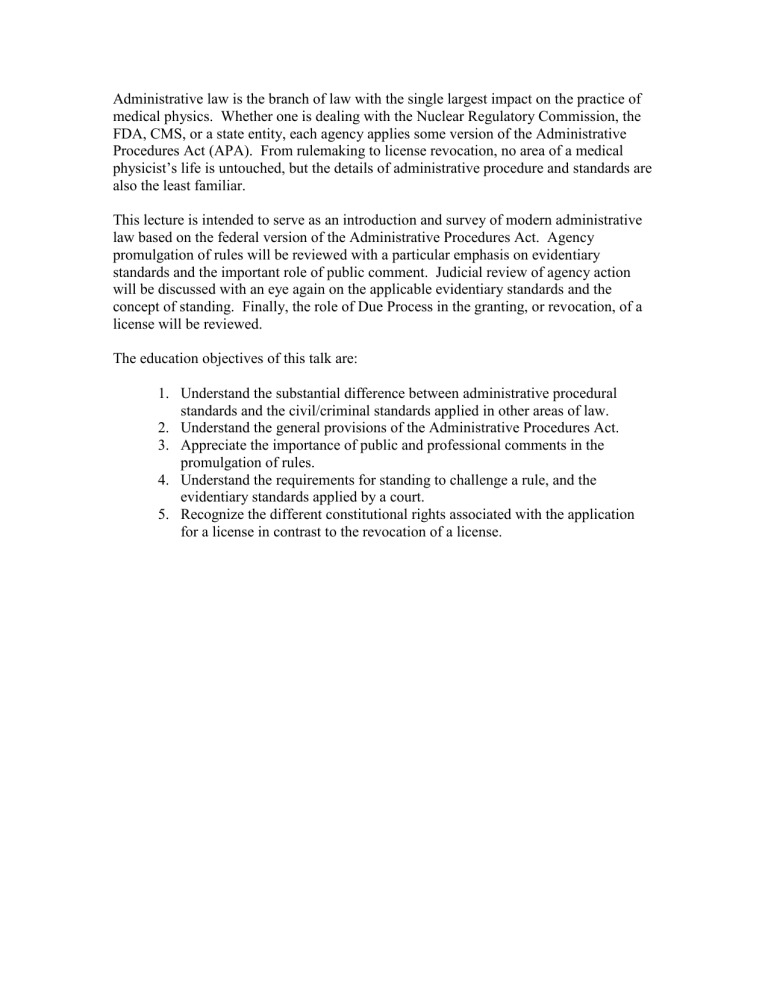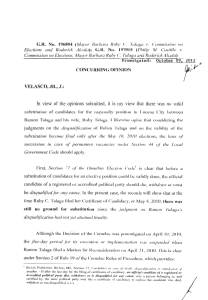Administrative law is the branch of law with the single... medical physics. Whether one is dealing with the Nuclear...

Administrative law is the branch of law with the single largest impact on the practice of medical physics. Whether one is dealing with the Nuclear Regulatory Commission, the
FDA, CMS, or a state entity, each agency applies some version of the Administrative
Procedures Act (APA). From rulemaking to license revocation, no area of a medical physicist’s life is untouched, but the details of administrative procedure and standards are also the least familiar.
This lecture is intended to serve as an introduction and survey of modern administrative law based on the federal version of the Administrative Procedures Act. Agency promulgation of rules will be reviewed with a particular emphasis on evidentiary standards and the important role of public comment. Judicial review of agency action will be discussed with an eye again on the applicable evidentiary standards and the concept of standing. Finally, the role of Due Process in the granting, or revocation, of a license will be reviewed.
The education objectives of this talk are:
1.
Understand the substantial difference between administrative procedural standards and the civil/criminal standards applied in other areas of law.
2.
Understand the general provisions of the Administrative Procedures Act.
3.
Appreciate the importance of public and professional comments in the promulgation of rules.
4.
Understand the requirements for standing to challenge a rule, and the evidentiary standards applied by a court.
5.
Recognize the different constitutional rights associated with the application for a license in contrast to the revocation of a license.


